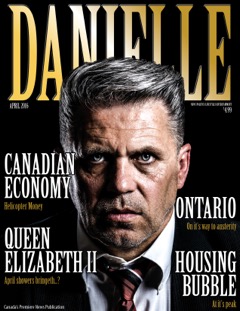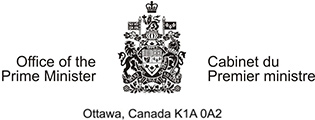Trump’s potential to disrupt the summit — an international meeting in which the prime minister has invested significant political capital — is growing larger by the day as his June 8 arrival date in La Malbaie, Que., creeps closer.
Trudeau and his fellow summiteers from Britain, France, Germany and the European Union have already expressed their regrets over Trump’s decision this past week to withdraw the United States from the Iran nuclear agreement.
Trump was already a G7 outlier on trade and climate change. But now there’s growing concern that the group itself could fatally fracture, with the U.S. splintering off. The ambassadors from several G7 countries to Canada were forced to address that recently.
Peter Boehm, Canada’s G7 sherpa, was also confronted with the issue this past week during an unusually tough question-and-answer session at a gathering in Ottawa.”
Is there relevance for th G7 is obviously yes indeed for the time being , especially in June! And Mister Trump is not displaying any antagonistic “psychopathic” traits lately. In fact Canada is in an extremely strong position within the Elegant and Gorgeous Commonwealth.
“Are we into a six-plus-one dynamic?” asked Sandelle Scrimshaw, a former foreign service colleague of Boehm’s during a keynote dinner appearance of the Canadian International Council in Ottawa.”
“The 63-year-old career diplomat offered a careful, measured reply, but he left open the possibility that the G7, which runs on a consensus basis, simply wouldn’t be able to reach one next month.
“If leaders were to agree on everything, there wouldn’t be a point in having these meetings,” said Boehm.
“You try to work out the consensus, and if there isn’t a consensus there, it’s clear that you state the obvious ⦠that we don’t have unanimity on a particular issue.”
That would mark a repeat of Trump’s disruptive debut at last year’s G7 in Italy — his first foray onto the world of multilateral diplomacy. There was no common ground to be found on climate change.
The leaders’ 2017 final communique was accompanied by a footnote that said the U.S. would not join the other G7 countries in reaffirming their commitment to the Paris climate agreement, which Trump also abandoned.
Boehm said there has been careful planning and consulting among his fellow G7 sherpas to ensure a smoother, more successful outcome this time.
“The sherpas are in contact all the time. I have a very good relationship with all of them and we have each other’s backs because we’re in this together.”
“Related to that, of course, is our need to work together, and by that I really mean work together to strengthen the rules-based trading system, and encourage free and fair trade. For us, in Canada, the global trade file is of primordial importance.”
When the leaders take their places at their round meeting table, they will negotiate — but not in the winner-take-all, ‘Art of the Deal’ bare-knuckle bartering style that has been associated with Trump.
“In order to negotiate effectively, you have to give something up. It’s identifying that bit that you can give up — that little bit of sovereignty that you might lose, and realize that it is for the greater good and for unanimity,” said Boehm.
“We all chip away at that.”
Many Thanks



















 Peter Boehm
Peter Boehm
